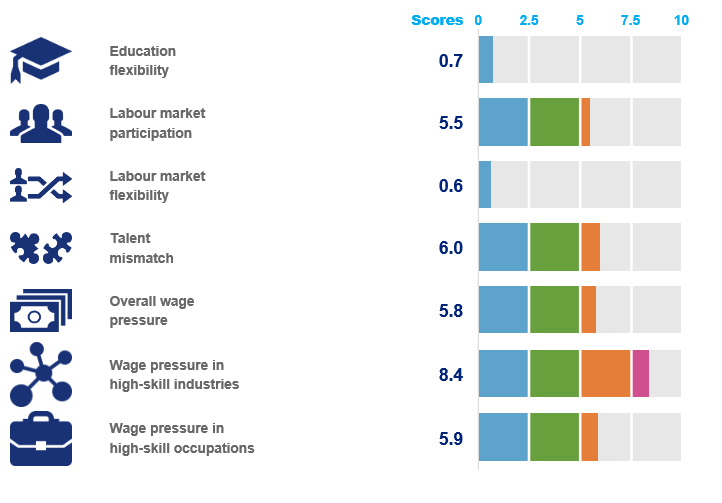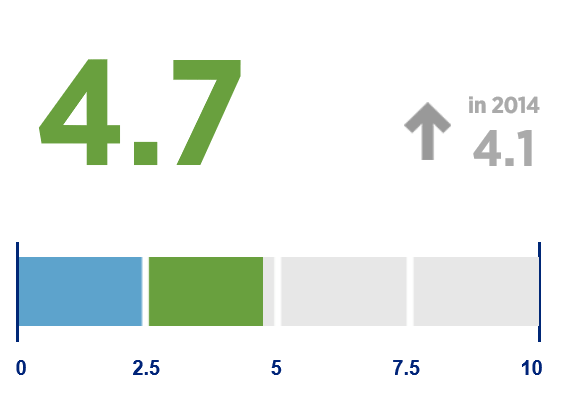The Hays Global Skills Index provides insights on the state/dynamics of the labor market in a country.
It is prepared by Hays and Oxford Economics and is calculated based on 7 factors:
- Education flexibility: How well the education system meets the needs of the labor market.
- Labor market participation: Rate of participation of the population in the labor market.
- Labor market flexibility: Whether (government) procedures and policies meet the needs of the market.
- Talent mismatch: Gap between talent needs of businesses and talent pool available.
- Wage pressure in high skill industries: Higher wages indicate skills shortages.
- Wage pressure in high skill occupations: Higher wages indicate skills shortages.
A higher score on a factor is bad and a lower score is good. The higher the score, the greater the pressure/challenges faced by a country on a particular factor.
The scale implemented by the study put the pressure/challenges on a 0 to 10 scale. A ‘zero’ on the scale indicates no pressure, while a 10 indicates severe pressure.
By looking at the score index for the Singapore job market, you can get an insight into the pressure placed on the labor market in 2015.

This study looked at 31 separate markets, and Singapore had one of the highest scores in two important areas.
1). It was found that Singapore scored very highly for overall wage pressures in high-skill industries. It scored a whopping 8.4 on the index, indicating quite a high level of wage pressures in high-skill industries.
One of the biggest reasons that were indicated as contributing to this stress was the lack of highly-skilled employees available for companies to hire. This problem was cited as a particularly alarming issue in the technology and engineering sectors.
Due to the limited amount of quality employees, the pressure to raise their wages high becomes necessary if companies want to recruit valuable talent.
2). Another area that has increased pressure for Singapore is the level of “talent mismatch” currently affecting the country at an indicated level of 6. This statistic shows that the available talent in Singapore often lacks skills that make them attractive to employers.
Singapore scored 5.5 for ‘labour market participation.’ What this indicates is that majority of the Singaporean workforce is already employed. Therefore, as things stand currently, the quantity of available talent cannot be increased by much, in order to tackle the skills gap.
However, two areas were scored very positively for Singapore. Both “education flexibility” (0.7%), and “labour market flexibility” (0.6%) had positive score indicators for the country.
Given these numbers, the overall analysis combines to give Singapore a score of 4.7, which is a 0.6% increase from last years score.

